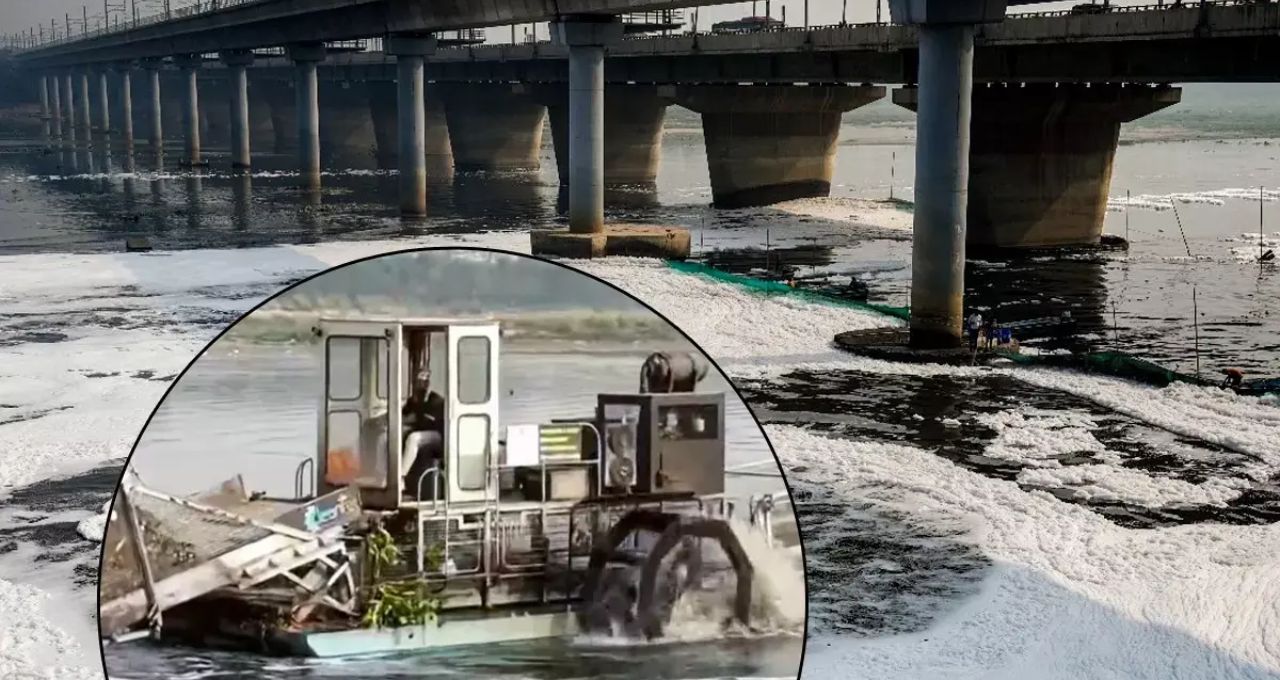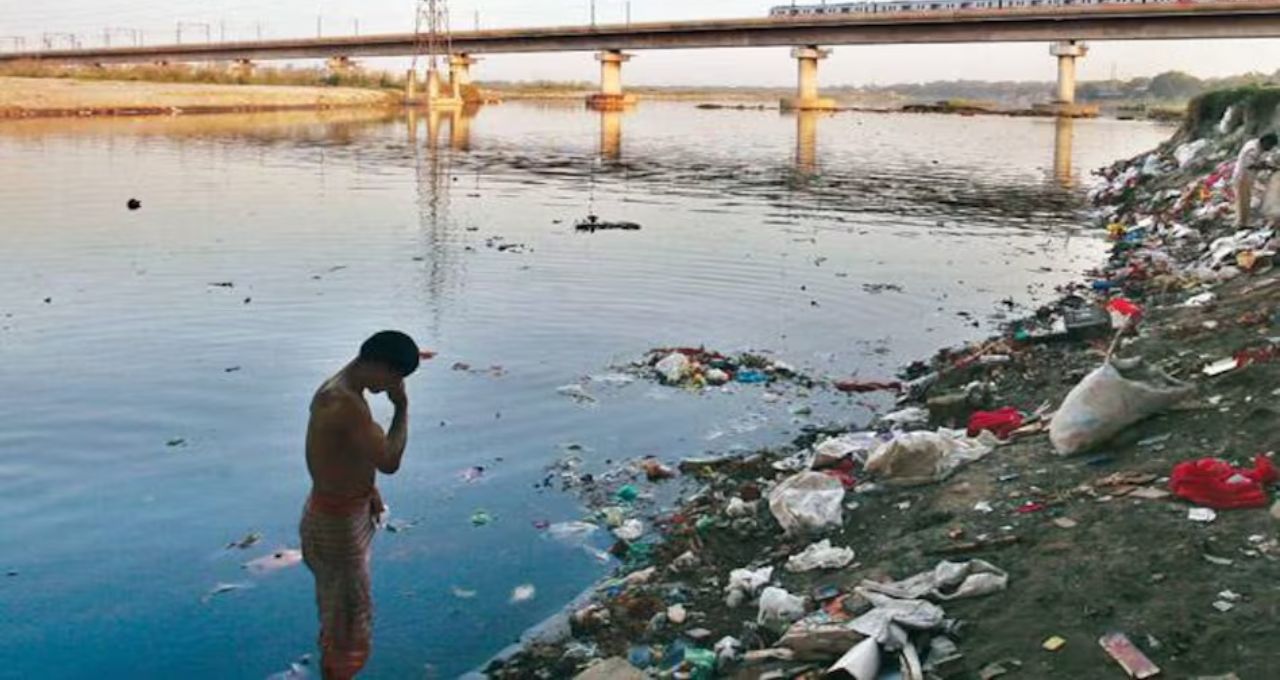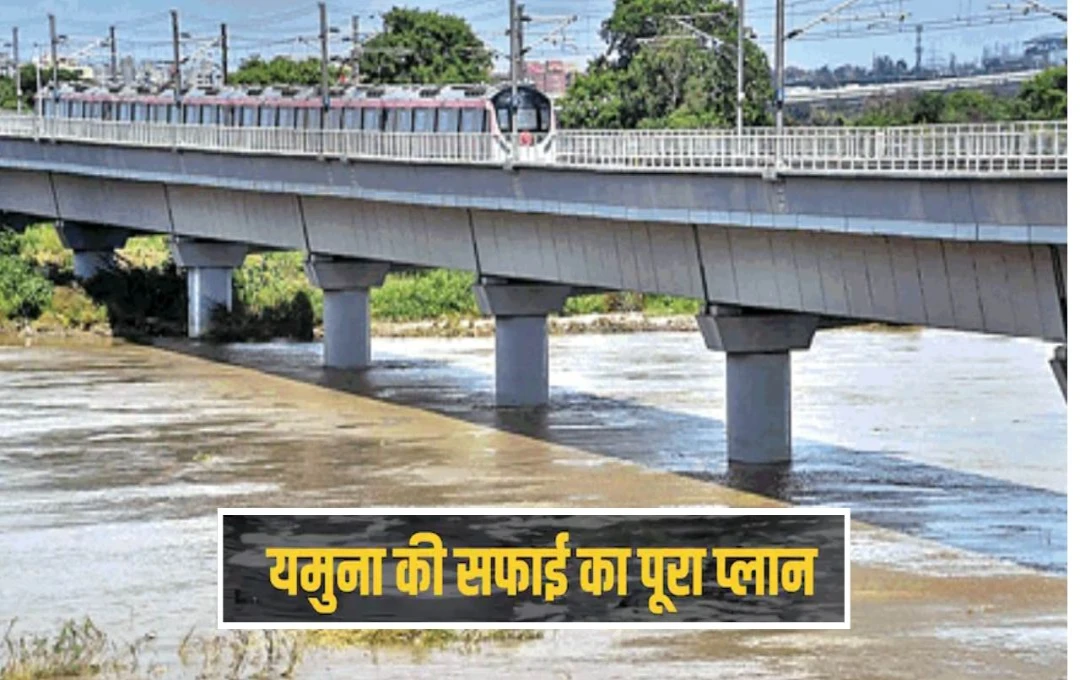Following the formation of the BJP government in Delhi, plans are being drawn up to clean and improve the Yamuna River. A special provision of ₹9,000 crore has been allocated in the 2025-26 budget for the conservation and revitalization of the Yamuna.
Dutch Water Management Policy: The government has launched an ambitious plan to clean and revive the Yamuna River in Delhi, with a total provision of ₹9,000 crore in the 2025-26 budget. Under this project, ₹1,500 crore will be spent on Sewer Treatment Plants and sewer line systems, while an additional ₹2,000 crore has been requested from the central government.
To make this effort successful, India has partnered with the Netherlands, and the roles of 14 departments and agencies have been defined, who will work together to improve the condition of the Yamuna.
Dutch Model and Yamuna Cleaning
The Dutch model being adopted for cleaning the Yamuna River is rooted in the Netherlands' water management policy. A large part of the Netherlands is below sea level, where the risk of tides and floods is always present. To combat this challenge, the Netherlands has developed a unique water management policy, which views water not only as a resource but also as a strategic tool.
This policy promotes sustainable development, climate adaptation, and social equality. It places special emphasis on research, design, funding, and engaging local communities to solve problems such as floods, pollution, and water scarcity. According to Dutch expert Henk Ovink, the mutual supportive power and connecting ability of water offer us opportunities that cannot be ignored.
₹9000 Crore Budget and its Expenditure

The BJP government of Delhi has allocated ₹9,000 crore in the 2025-26 budget to improve the condition of the Yamuna. Out of this, ₹1,500 crore will be spent on the construction and improvement of Sewer Treatment Plants and sewer lines. In addition, an additional amount of ₹2,000 crore has been requested from the central government for the conservation of the Yamuna River in the National Capital Region. This amount will mainly be used for pollution control, water reuse, wetland management, and biodiversity conservation.
In this Yamuna cleaning campaign, the National Mission for Clean Ganga (NMCG), in collaboration with the Netherlands, has defined the roles of 14 major departments and agencies, including the National Institute of Urban Affairs (NIUA), IIT Delhi, Delhi Jal Board, Delhi Development Authority, Municipal Corporation of Delhi, Central Pollution Control Board, and Delhi Pollution Control Committee.
The aim of this alliance is to ensure long-term ownership, institutional capacity, and active participation at the grassroots level. All agencies will work together to carry out development work according to the sensitivity of the river, which will ensure pollution control as well as sustainable management of water resources.
River City Alliance and Urban River Management Plan
The government has implemented the Urban River Management Plan under the 'River City Alliance'. The objective of this plan is to improve the condition of the Yamuna River while addressing the problems of the city. Special attention will be paid to preventing water pollution, garbage, and industrial waste in urban areas, and to improving the sewer network.
The plan also includes aspects of water reuse, wetland conservation, and biodiversity promotion, so that the river's ecosystem can be strengthened.
History of Dutch-Indian Water Partnership

The strategic partnership between India and the Netherlands regarding water management began in 2015 when the Prime Minister of the Netherlands, Mark Rutte, visited New Delhi. This cooperation was further strengthened during Prime Minister Narendra Modi's visit to the Netherlands in 2017.
Projects such as the Dutch Indo Water Alliance and 'LOTUS' (Local Treatment of Urban Sewage Streams) in Delhi were initiated. During the virtual meeting of the Prime Ministers of both countries in April 2021, this partnership was further expanded, and in 2022, the Union Minister of Jal Shakti and the Water Minister of the Netherlands signed an agreement.
The impact of this partnership has also been seen in the Mahakumbh of Prayagraj and the water crisis projects of Chennai, where decentralized water storage schemes have been successfully implemented. The purity and sanctity of rivers can only be maintained with the active participation of local society and the public. After coming under government control in the colonial era, the natural flow of rivers was disrupted. Now it is necessary to involve local communities again in river conservation so that the river remains continuous and clean.










